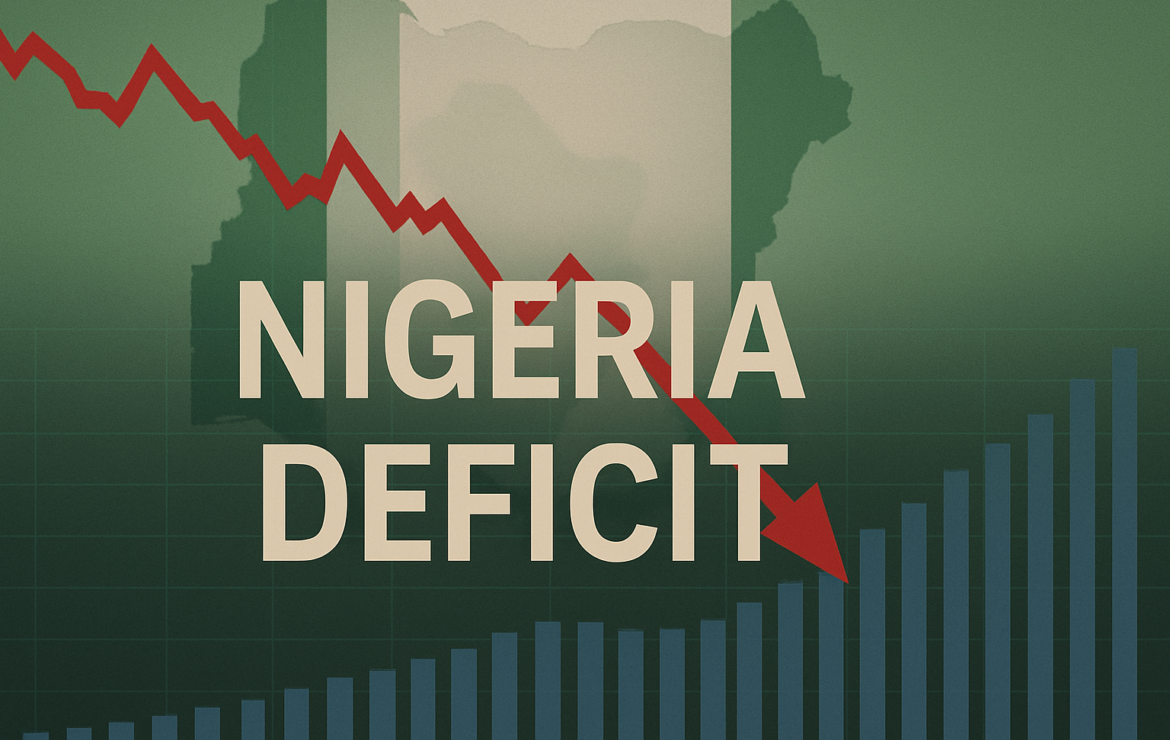From an all-time high GDP of $540 billion in 2014, Nigeria’s GDP is expected to have dropped to $252 billion by the end of 2024 which effectively means that the size of the economy of the country has reduced by more than 50% in the last decade. This appalling situation gets more curious when you consider that in the decade prior to 2014 when the decline began, Nigeria was the fastest growing economy in Africa with the economy growing rapidly from a paltry GDP of $58 billion in 1999 to a peak of $540 billion in 2014.
Ordinarily, it should take a natural disaster or an outbreak of war for the economy of a country to decline so rapidly but in the case of Nigeria, none of this happened. It all stemmed from fiscal indiscipline on the part of government which led to excessive deficit spending over the past decade and resulted in the Naira losing its value in contrast to other international currencies.
One must note that even though Nigeria experienced two bouts of recession in the past decade, what is mostly responsible for the reduction in the GDP of the country in dollars terms is the falling value of the Naira and not due to any major contraction or reduction in economic activity within the country. From an exchange rate of N165 to the dollar in 2014, the exchange rate is currently N1,600 to the dollar. This means that the Naira has depreciated by almost 1,000% in the past decade and this is what is responsible for the decline in Nigeria’s GDP in dollar terms.
While deficit spending in itself is not a bad thing as it can be a useful strategy to solve certain economic challenges, it must be done responsibly, within certain limitations, and only for a limited period of time. However, in the case of Nigeria and contrary to the country’s fiscal responsibility laws, the successive administrations indulged so much in deficit spending that by 2023 almost 100% of the budget was being funded through deficits because up to 97% of the country’s revenue was being used to service accrued debt obligations.
The question arises; how exactly has deficit spending been ruining the Nigerian economy? Deficit spending occurs when a government spends more money than it receives in revenue, resulting in a budget deficit. Governments normally resort to borrowing from domestic and foreign lenders, printing money, and issuing bonds and other securities to finance these deficits
The above-listed activities by the government to finance their deficit normally leads to an increase in money in circulation without a corresponding increase in the volume of goods and services being produced within the economy. Elementary economics tells us that inflation occurs when “there is too much money chasing too few goods” and this is what happens when government increases the money in circulation without ensuring increased productivity within the economy.
Apart from the inflationary pressure the increased money in circulation exerts on the economy, it also increases the demand for foreign exchange in the country as Nigeria is an import-dependent country and many Nigerians inclusive of corrupt politicians prefer to keep their money in more stable currencies to preserve its value. This increased demand for foreign currencies puts further pressure on the local currency which leads to further decline in it’s value which then turns around to add to the inflationary pressure in the country.
For the economy to have some respite, the government would have to make drastic cuts in the cost of governance to reduce the deficit while at the same time, the government ensures through its policies that a lot more resources are made available to the productive sector of the economy to stimulate the productive sector, create jobs, reduce inflation and grow the economy.
With a more vibrant productive sector of the economy, the government will then be able to generate more taxes to fund its activities and it will not be adding inflationary pressure to the economy in the process. But as the case is in Nigeria, the government seems to be too much in a hurry to access cash to spend and is not willing to go through the process of supporting the growth of the economy to generate more revenue thus the shortcuts of borrowing excessively and printing more money which are both detrimental to the economy.
Nigerians recently hit the streets to protest the economic hardship they have been going through but the government responded by accusing them of being sponsored by opposition politicians which suggests that they are in denial of the economic hardship Nigerians are going through as a result of the government’s handling of the economy, neither do they intend to do anything about the situation.
While the protests have subsided for now, the government has continued with its expansionary monetary policy and extravagant spending which keeps increasing the deficit.
Oshobi, a development economist, management consultant, and author writes from Lagos, Nigeria

